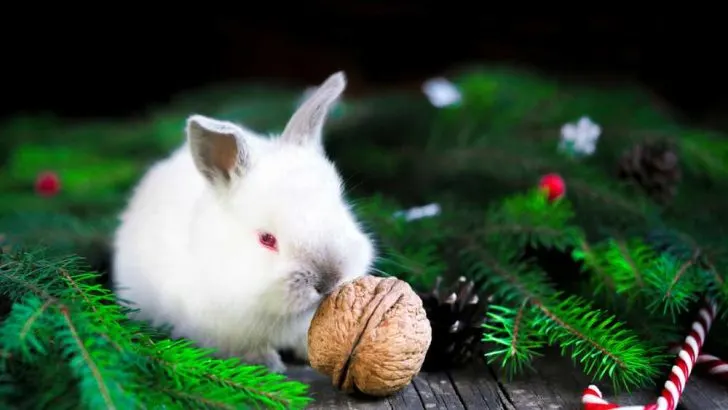Walnuts are probably some of your favorite healthy snacks. But if you enjoy them so much, can your rabbit enjoy them with you?
Unfortunately, no. You should avoid feeding your long-eared pets any kind of nuts, especially walnuts.
I’ve had my friends try feeding their rabbits walnuts, and it wasn’t the greatest idea they’ve ever had. If this happens to you, you are not to worry. Walnuts aren’t toxic, they’re just bad for your little furballs.
This made me think long and hard about some alternatives, and throughout my research and extensive time spent with my rabbits, I’ve come to some conclusions about any kind of nuts in their diet.
If you want to find out what I’ve learned about rabbit’s diet involving walnuts and other nuts, keep reading and take notes!
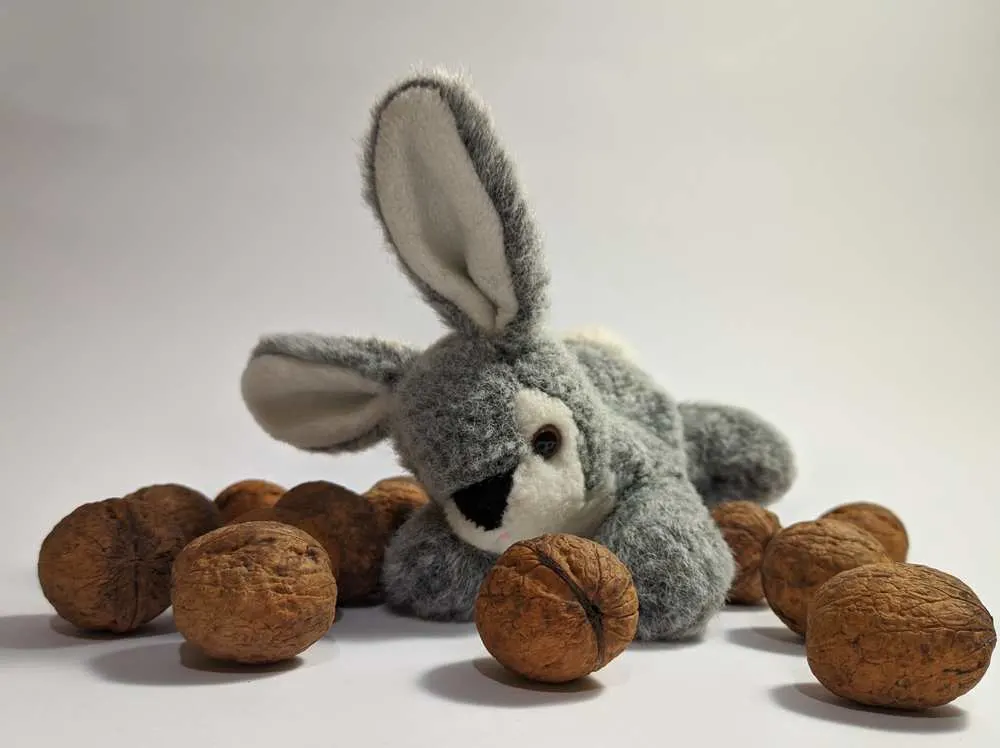
Walnuts & Other Nuts In Rabbit Diet – Why You Should Avoid Them?
Walnuts are an extremely rich source of fats, carbs, dietary fibers, and proteins. But should they be implemented in your rabbits’ diet just because of how nutritious they are?
Rabbits should have a healthy diet consisting of veggies, fruits, and pellets. No vet has ever recommended to me to feed my rabbit nuts, and for a reason.
These bitter snacks contain an astonishing 65% of fats, which poses a problem to rabbits. That amount of fats causes indigestion due to a recommended amount of fats for rabbits is 3,5% at max.
Other nuts such as peanuts, hazelnuts, and macadamia nuts all have a high level of fats in them as well. These fats are highly recommended for humans and perfectly safe for human consumption, but aren’t safe for our little furballs.
Rabbits have much more sensitive stomachs, making them highly intolerant to foods that contain any component in numbers as high as these.
Research (as well as my personal experience) shows that instead of nuts, your rabbit’s diet should consist of raw vegetables (such as green salad, cabbage, and a bit of carrot), fruits (excluding any citrus fruits), and rabbit pellets that can be found in almost any pet store.
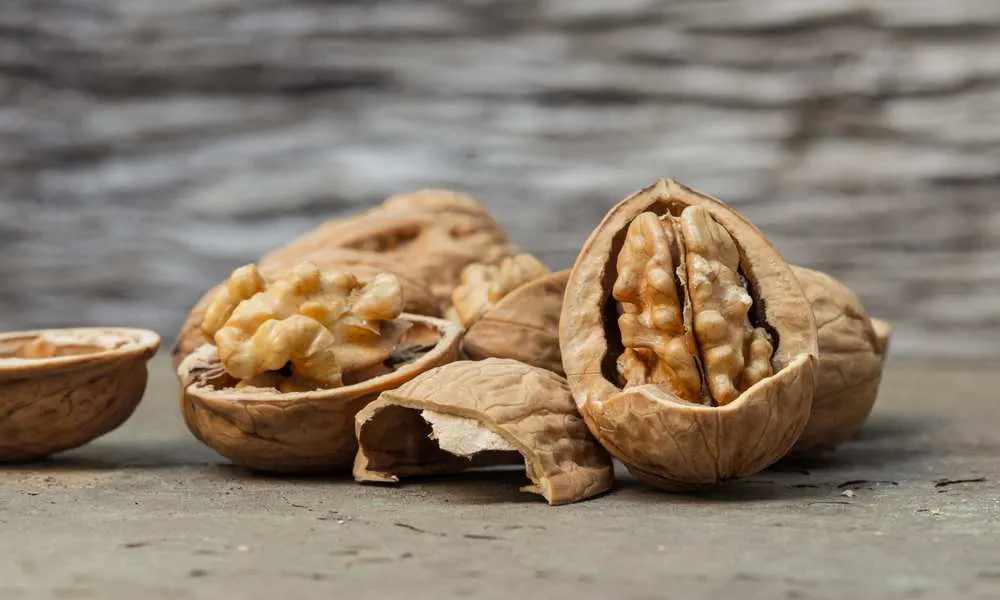
Nuts – What’s Wrong With Them?
In order to be precise when pointing a finger at exactly why walnuts should be kept far out of reach of your rabbits, we need to understand some basic nutritional values of this food.
As I’ve said earlier, all kinds of nuts are rich in fat, as well as a number of vitamins. So, let’s take a look at some of the most important nutritional values that are found in walnuts:
| Ingredient | Nutritional value (per 100g) |
|---|---|
| Carbohydrates | 13,71 |
| Fat | 65,21 |
| Vitamin C | 1,3mg |
| Vitamin E | 0,7mg |
| Calcium | 98mg |
| Sodium | 2mg |
| Iron | 2,91mg |
From the table above, we can see walnuts are extremely healthy and full of nutrients. But, you have to keep in mind this is good only when referring to the human diet.
Foods that are suitable for rabbits are much less dense in fat, sugar, and starch, and are richer in fiber and protein. This allows them to have well-regulated digestion and a healthy stool. And that’s pretty important for the little furballs!
Walnuts don’t contain much sugar or starch, but (as I’ve said before) they are extremely rich in fat. This is the main concern when talking about walnuts.
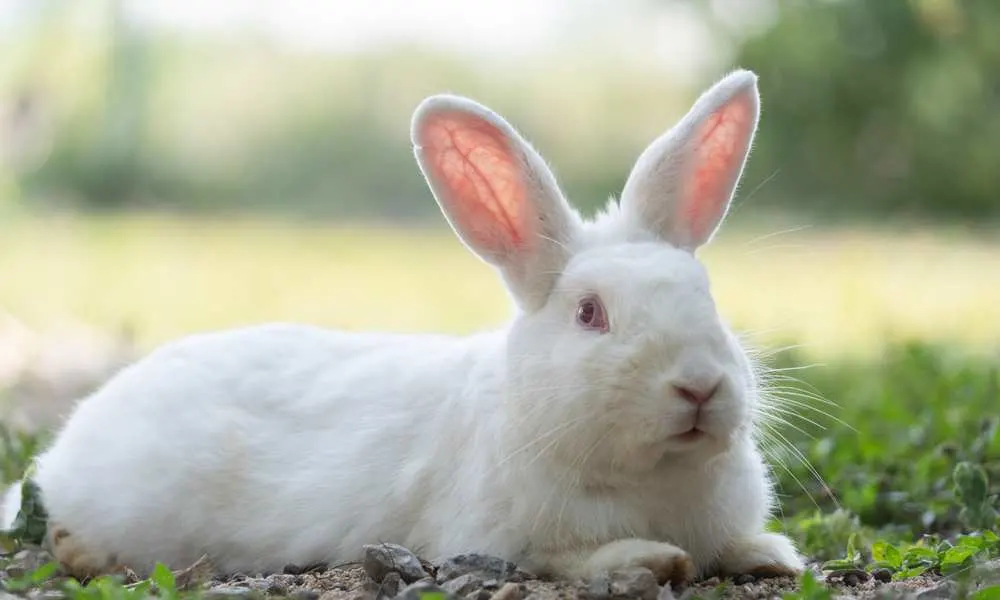
Consequences of Feeding Your Rabbit Walnuts
If you’re still wondering can rabbits eat walnuts, I suggest you read a little bit about what can happen to your pet if you choose to give it walnuts regularly.
There are not many problems that can happen to your rabbit if you feed them walnuts regularly, but the problems that can occur are pretty serious ones. Some of the main problems are:
- Obesity and weight gain – this problem will happen almost always if you feed your rabbits walnuts. Their bodies are not used to processing that amount of fat, so they’ll store it making them obese.
- Hepatic lipidosis – or in other words, a fatty liver. This is also inevitable if you implement walnuts in your rabbit’s diet. Internal organs will start to store fat around them, and the liver will be one of the first organs that will feel the consequences of a fat-heavy diet of your rabbit.
- Indigestion and constipation – As I’ve already mentioned, rabbit tummies are not used to process fat or sugar-heavy foods. This leads to intense constipation which manifests itself in lack of activity, and indigestion which can lead to cramps and a tummy ache.
If your rabbit gets its paws on some walnuts by mistake, you shouldn’t be worried at all! A few walnuts won’t have a ruinous consequence, because as you’ve already read, all of the bad consequences set in after a longer period of consumption.
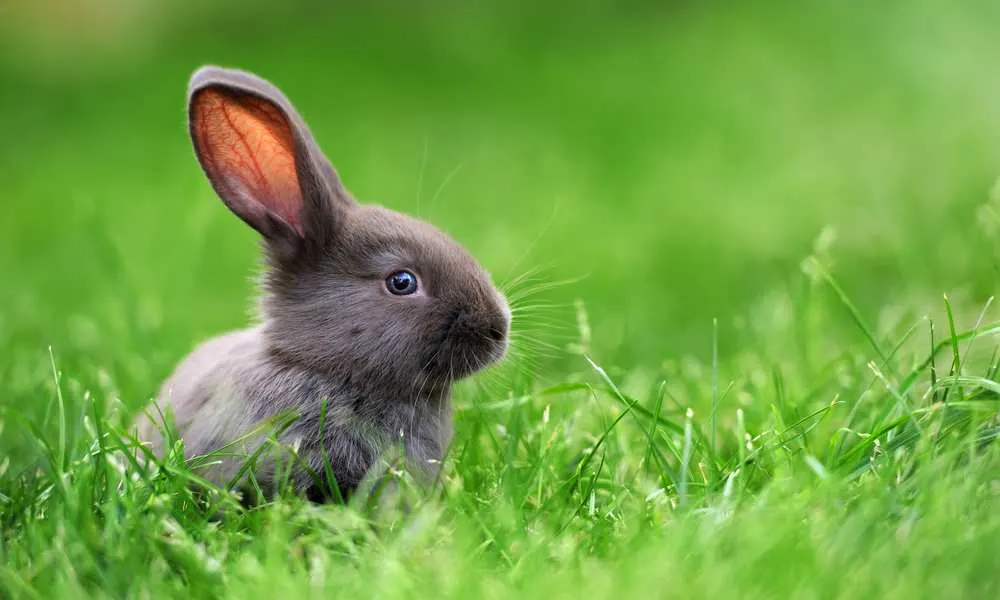
Healthy Alternatives To Walnuts In Your Rabbit’s Diet
In my experience, walnuts are interesting to rabbits for one reason, and one reason only – to nibble on them! A hard shell and a relatively soft texture inside seem like a perfect object to nibble on.
In order to keep your rabbit busy, and not thinking about nibbling on stuff he shouldn’t be nibbling on, I suggest you give your pet a healthy amount of grass hey. This crunchy and low-calorie food is an excellent choice when searching for an alternative to walnuts.
Also, some crunchy veggies won’t harm the little furball either. Nevertheless, you should be careful of what veggies you give them, keeping in mind some vegetables can also be harmful to your pets.
I suggest you stick to:
- Carrots
- Squash. Read Also: Can Rabbits Eat Acorn Squash?
- Peapods
- Broccoli
These are all very rich in fibers and will fit right into your rabbit’s healthy way of life. They’re also very good for gradually grinding their teeth down.
It’s well known amongst rabbit owners that their pets like to nibble on things they shouldn’t nibble on, so that’s a bonus problem you’ll solve if you try feeding your rabbit these foods.
Alternatives For Fat Intake
Can rabbits eat walnuts, and if they can’t, how do they consume fats? Regardless of the biggest reason not to feed walnuts to your rabbit being the amount of fat that’s found in them, your pet still needs 2% to 3,5% fatty foods in their diet.
This is where rabbit pellets come in handy! Most rabbit pellet manufacturers include some kind of fat source in their products. This is actually the best way to regulate the fat intake of your rabbit and be carefree at the same time.
But, be careful. There are some pellets that are fat or sugar-free specifically made for rabbits that have a dietary problem. These should be avoided (unless a vet recommends them) because then you’ll have to compensate for the fats that they didn’t ingest.
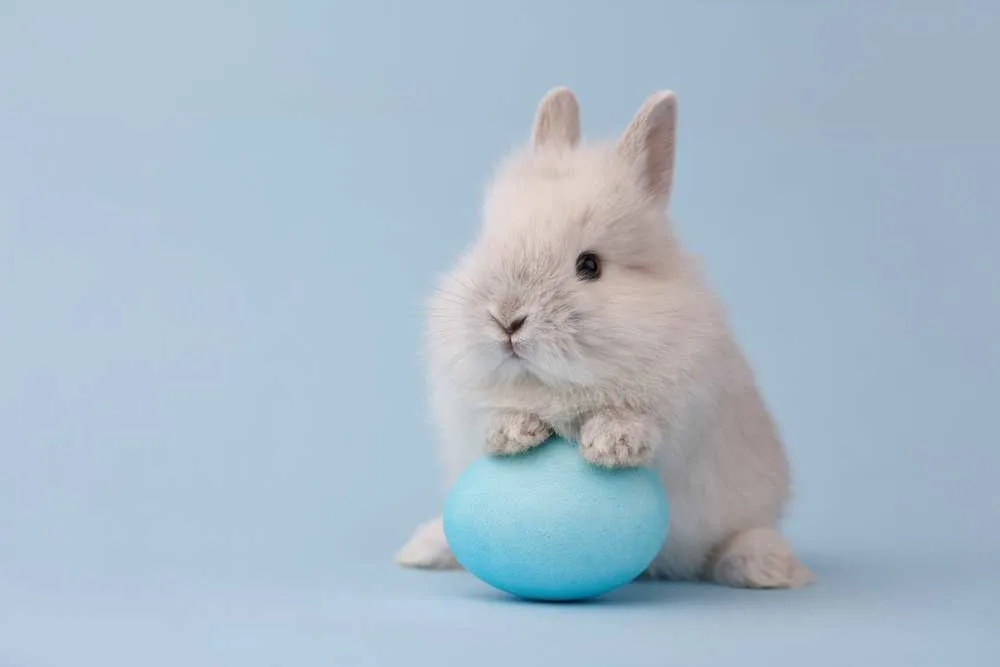
What To Avoid Besides Walnuts?
As I’ve stated earlier, no nuts are recommended by vets, and even PETA lists some of them as foods you should never feed your rabbit.
Besides these, there is some more food that you should avoid in all cases. First on this list (and this may come as a shocker) is hamster food. Pellets that are intended for hamsters should never be fed to rabbits and vice versa. Rabbits require a special pellet mix that is high in fibers.
Next is any kind of cereal. I’ve seen some people implement a handful of cereal in their rabbit pellet bag, but this is actually not recommended. This can lead to some serious oral problems with your pet, and can even negatively affect their digestion.
Bread, pasta, or any kind of dough is not to be fed to your rabbit in any situation. These foods contain a very high amount of carbohydrates which are bad for rabbits’ tummy. So, even as a treat, you should not give your little furballs those bread crumbs!
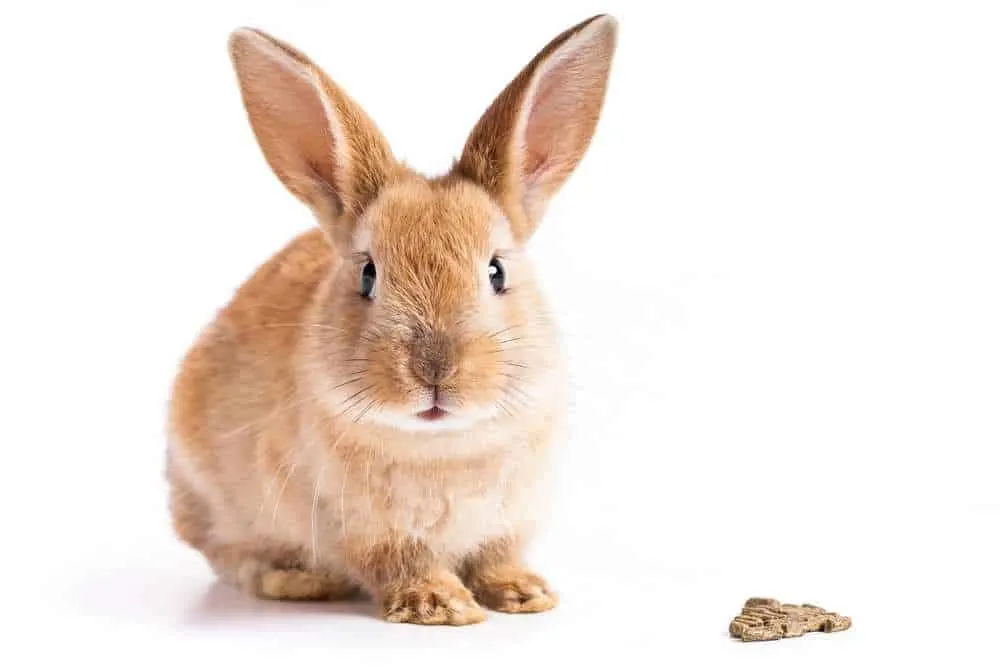
Let’s Sum it Up
If you’re still wondering can your rabbit eat walnuts, the answer is – definitely no. You should keep your furry pets away from any kind of nuts, especially walnuts.
As you’ve all read, there’s no real benefit to counterweighting all the health problems that may come with feeding your rabbit walnuts. If anything, you’ll only have problems if you do this.
But, as you’ve seen there are healthy alternatives to walnuts! Keep your rabbit occupied with said alternatives, and you won’t have a care in this world regarding your rabbit’s walnut cravings.
Related Read: Can Rabbits Eat Acorns?

